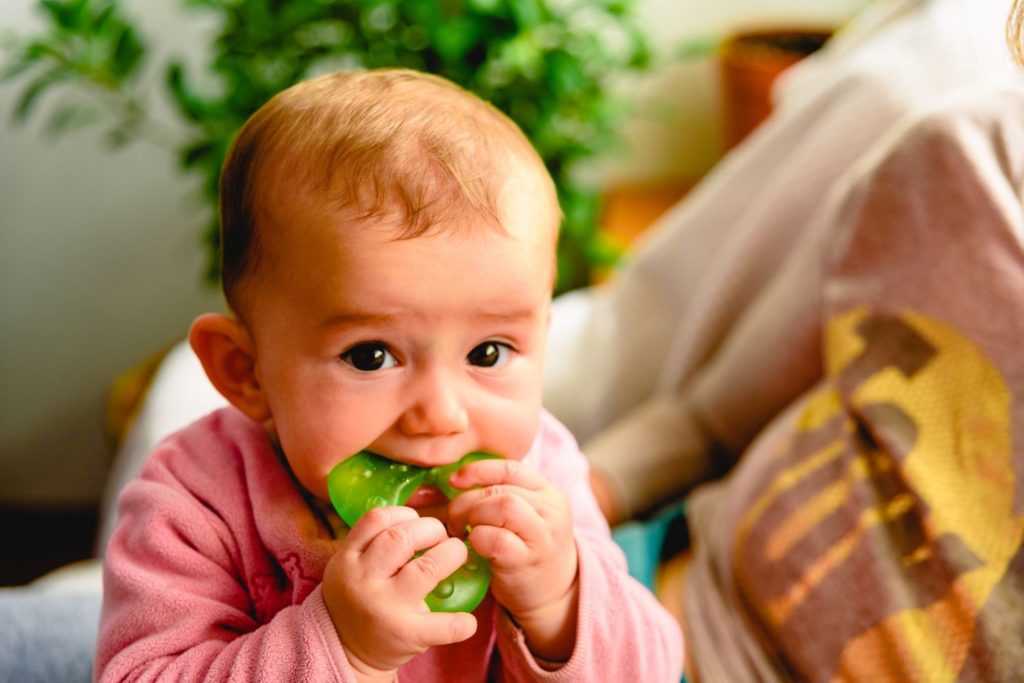Teething can be a challenging time for both babies and parents. Understanding the signs and knowing how to ease your baby’s discomfort can make a big difference. Here’s when to ask your pediatrician about the signs of teething in your baby and what you need to know.
Why Recognizing Teething Signs Matters
Recognizing the signs of teething can help you provide the right care and comfort for your baby. It also helps you rule out other potential issues that might cause discomfort.
Signs It’s Time to Ask About Teething
When should you discuss teething with your pediatrician? Here are some signs:
- Excessive Drooling: If your baby is drooling more than usual.
- Fussiness: If your baby is unusually fussy and irritable.
- Chewing on Objects: If your baby is constantly chewing on their hands or objects.
Questions to Ask Your Pediatrician
When discussing teething, consider these questions:
- What are the common signs of teething?
- How can I help ease my baby’s discomfort?
- Are there any teething remedies you recommend?
- When should I be concerned about my baby’s teething symptoms?
- Are there any products I should avoid using for teething relief?
Common Signs of Teething
Physical Symptoms
- Drooling: Increased drooling is a common sign of teething.
- Swollen Gums: Your baby’s gums might appear red and swollen.
- Cheek Rubbing and Ear Pulling: Your baby might rub their cheeks or pull at their ears due to gum pain.
Behavioral Symptoms
- Increased Chewing: Your baby may chew on their hands, toys, or other objects.
- Irritability: Teething can make your baby more irritable and fussy.
- Sleep Disturbances: Your baby might have trouble sleeping due to gum discomfort.
Other Symptoms
- Loss of Appetite: Your baby might eat less due to sore gums.
- Mild Fever: A low-grade fever is sometimes associated with teething, but a high fever should be checked by a doctor.

Remedies to Ease Teething Discomfort
Cold Compresses
- Teething Rings: Use cold (not frozen) teething rings to soothe your baby’s gums.
- Cold Washcloth: Offer a clean, cold washcloth for your baby to chew on.
Gentle Gum Massage
- Clean Fingers: Gently massage your baby’s gums with a clean finger.
- Teething Gel: Use a small amount of pediatrician-recommended teething gel.
Teething Toys
- Safe Toys: Provide safe, soft teething toys for your baby to chew on.
- Variety: Offer a variety of textures to help soothe different areas of the gums.
Comforting Your Baby
Extra Cuddles
- Comfort and Reassure: Offer extra cuddles and comfort to soothe your baby.
- Soothing Activities: Engage in soothing activities like rocking or singing.
Maintain Routine
- Consistency: Try to maintain your baby’s regular routine to provide a sense of stability.
- Comfort Items: Use familiar comfort items like a favorite blanket or toy.
When to Seek Medical Advice
Persistent Symptoms
- High Fever: Contact your pediatrician if your baby has a high fever.
- Severe Diarrhea: Seek medical advice if your baby has severe diarrhea.
Unusual Symptoms
- Rash: A persistent rash that doesn’t improve should be checked by a doctor.
- Extreme Irritability: If your baby is extremely irritable and nothing seems to help, consult your pediatrician.
Teething can be a tough phase, but recognizing the signs and knowing how to provide comfort can make it easier for both you and your baby. By discussing your concerns with your pediatrician and using safe, effective remedies, you can help your baby through this important developmental stage. Don’t hesitate to reach out to your pediatrician for guidance and support.

